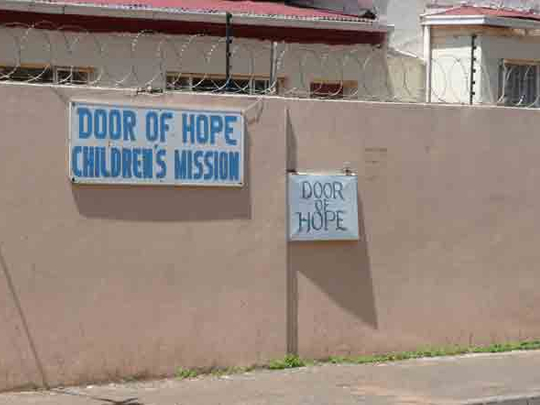
Dubai: A 'door of hope' is saving the lives of dozens of unwanted newborn in South Africa, thanks to a combination of compassion and technology, BBC Online reported.
At the Door of Hope in – a metal hatch on a wall in Hillbrow Street in Johannesburg’s Berea suburb – mothers can place their babies, usually newborn, inside and leave them anonymously to be found and cared for. Once the infant is placed inside the "baby bin", sensors on the mattress set off an alarm. "When that alarm rings you drop everything because you know there is a tiny baby in there fighting for his or her life," a caregiver at the Door of Hope orphanage told BBC.
The child is then taken for a medical check-up. "Some of the babies we get through the bin are healthy but others are not so lucky. Some are dehydrated, malnourished and underweight and we have to nurse them back to health," Angela Kizobokamba from the centre told the British broadcaster.
The baby hatch opened in 1999 by a local church in response to the number of infants' bodies, which were being found in the area every month. To date, Door of Hope has received more than 960 children - 10 per cent of which were left in the baby bin, according to the BBC. Berea has a reputation for crime, unemployment prostitution and drugs. Child welfare workers here say the area's desperate social conditions, compounded by Aids, are the main reasons why so many young mothers abandon their children, the website reported.
The unique concept has also been adopted in India’s southern state of Kerala – the Ammathottil orphanage was set up around four years back – and in Malaysia.
Inside the South African orphanage, the carers have a busy day at work every day: feeding some of the older babies, bathing and playing with them, the BBC reported.
According to Kizobokamba, most babies are abandoned during the holidays, with Christmas and Easter being the busiest times of the year. Some of the abandoned babies are as young as two weeks. The Door of Hope plans to implement a programme where the babies can be adopted by families who can provide for them. None of the children can be identified to protect the children and the identities of their birth mothers, BBC reported.
The website quoted Child Welfare South Africa (CWSA) - the country's largest non-governmental organisation – as saying that more than 2,000 children are abandoned in the country every year - a 30% increase in the past three years. Many of them are found near death in rubbish bins, wrapped in plastic bags, inside toilets, shoe boxes, open fields and parks and often die within hours of birth from dehydration, starvation or hypothermia.
The orphanage has received criticism for the hatch over the years, with people saying it gives mothers an easy way out – a criticism they have rejected, according to the BBC. "By the time somebody finds these children, they are usually already dead. At least with this, mothers who can't keep their babies know that their child has a chance at life," an official at the centre told BBC.












